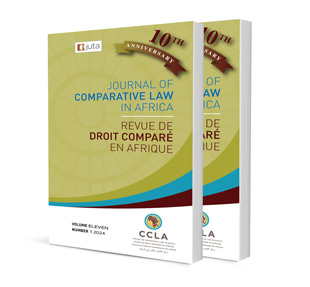
Duty to Act Provisions and Omissions Offences Under the Anti-Human Trafficking Statutes of Malawi, Uganda and South Africa
Author: Martin Visuzgo Chipofya
ISSN: 2521-2605
Affiliations: LLM (Sussex), LLB (Hons) Mw, Principal Resident Magistrate (Malawi Judiciary), Part-Time Lecturer (University of Malawi)
Source: Journal of Comparative Law in Africa, Volume 11 Issue 2, p. 80 – 108
https://doi.org/10.47348/JCLA/v11/i2a3
Abstract
To effectively combat human trafficking, states have enacted domestic anti-human trafficking statutes to support the cause. Many of these statutes impose positive duties on both natural and legal persons, reinforced by criminal sanctions. The article examines the anti-human trafficking statutes of Malawi, Uganda, and South Africa, focusing on provisions that carry positive duties and, consequently, create omissions offences. It argues that while most positive duties – and the resulting offences of omission – in these statutes comply with criminal-law principles for imposing positive duties and criminalising their breach, some provisions in Malawi’s and South Africa’s anti-human trafficking statutes contain vague terms or phrases. Such terms or phrases may undermine the effective enforcement of these provisions and violate the principle of legality with respect to offences of omission resulting from non-compliance. The article further observes that while certain provisions in Uganda’s and South Africa’s anti-human trafficking statutes fail to consider the duty bearer’s capacity and opportunity to comply when imposing positive duties, these provisions are generally precise. The article argues that the benefits of precise language in an anti-human trafficking statute outweigh concerns regarding disregard for the duty bearers’ capacity and opportunity. Moreover, any consequences from this disregard can be addressed through sensitive or proactive prosecution or, where prosecution is pursued, the defence of impossibility.